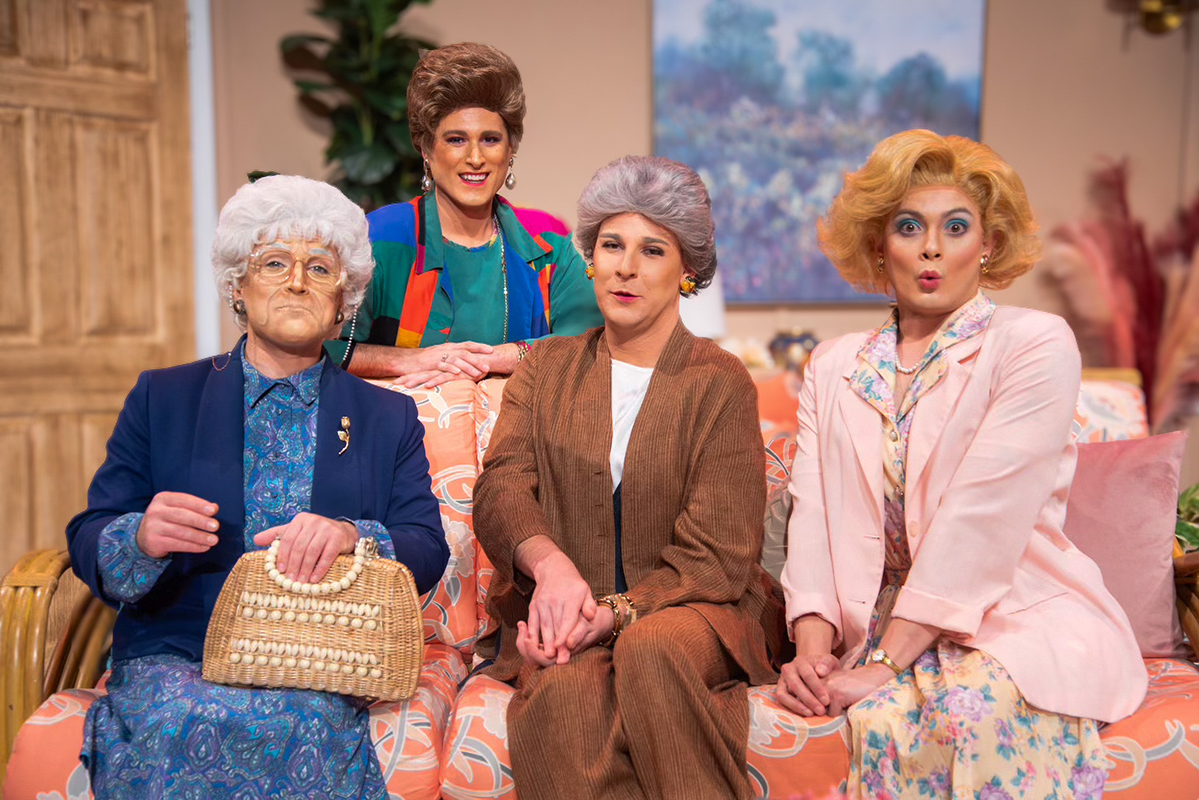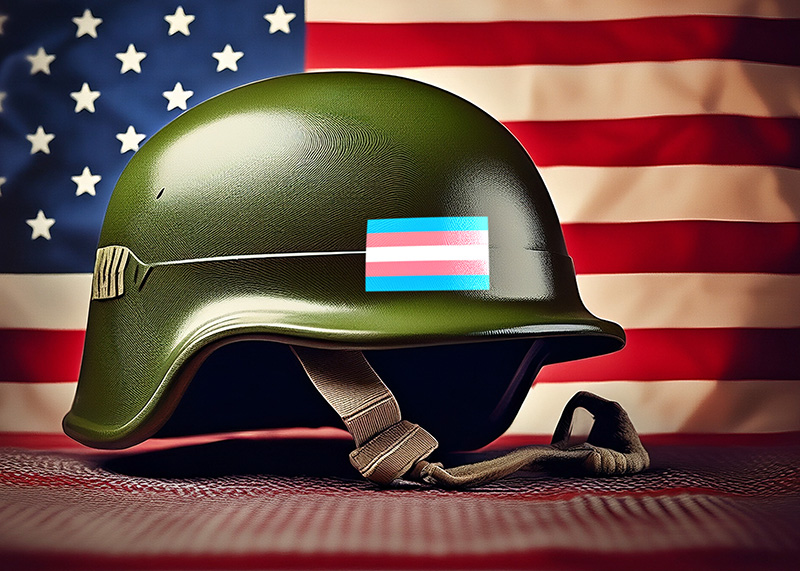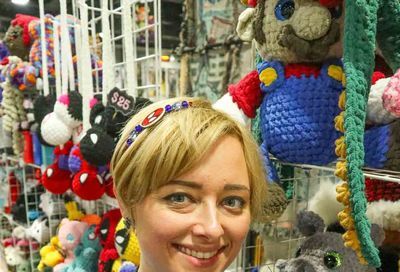Former Olympic athlete claims drag is ‘like blackface’
Sharron Davies called drag shows a "parody of what a real woman is, like black face"

A former Olympic athlete has drawn criticism on social media after comparing drag queens to blackface.
Sharron Davies, a competitive swimmer who represented the United Kingdom in the 1976 and 1980 Olympics, has become better known in recent years for opposing trans athletes competing in accordance with their gender identity.
On Saturday, she turned her attention to drag queens, whom she compared to those who engage in the offensive and racist practice of blackface.
“Am I the only person fed up of drag shows?” Davies asked. “A parody of what a real woman is, like black face. Woman are juggling kids, rushing out a wholesome dinner, doing the laundry & cleaning, holding down a job all with period pains & leaky boobs if breast feeding. Enough of the stereotypes.”
Am I the only person fed up of drag shows? A parody of what a real woman is, like black face. Woman are juggling kids, rushing out a wholesome dinner, doing the laundry & cleaning, holding down a job all with period pains & leaky boobs if breast feeding. Enough of the stereotypes
— Sharron Davies MBE (@sharrond62) December 21, 2019
While many of Davies’ followers agree with her, the comments have drawn negative reaction from LGBTQ people and allies.
RuPaul’s Drag Race judge Michelle Visage responded to Davies, telling her she could also “see drag for what it actually IS, which is a celebration and homage of all things feminine, giving power to those who need it!”
She continued: Strong women aren’t threatened by drag queens, but rather empowered by their chutzpah. HAPPY HOLIDAYS!!”
OR…you can see it for what drag actually IS, which is a celebration and homage of all things feminine, giving power to those who need it! Strong women aren't threatened by drag queens, but rather empowered by their chutzpah. HAPPY HOLIDAYS!! https://t.co/Ycux4c8epy
— michelle visage (@michellevisage) December 21, 2019
Drag Race season 9 star Trinity The Tuck responded to Davies, calling her tweet “straight white privileged ignorance.”
“Only weak minded people view it this way. If you are THAT strong of a woman/mother .. a man dressing up in women’s clothing to lipsync a song shouldn’t even be on your radar,” Trinity tweeted. “Sounds like straight white privileged ignorance to me.. but what do I know?? I’m just a man in a dress.”
Drag Race season 2 and All Stars 2 star Pandora Boxx called Davies out for comparing drag to blackface, and said drag shows are “all inclusive.”
“Not even close to the same thing,” Boxx tweeted. “And using a stereotype of what women do really doesn’t help sell this misguided statement. Drag shows are celebratory and all inclusive. I’m also certain you’ve never actually been to a drag show. So zip it.”
Drag Race UK star Vinegar Strokes noted that Davies herself was engaging in stereotypes with her view of what it means to be a woman.
“STOP ALL DRAG SHOWS!! [Sharron Davies] is fed up and is suffering from Drag Fatigue!” Strokes wrote. “My love, have you never thought that a majority of Drag Queens are celebrating woman and the fantastic achievements woman have made to shape the world. YOU do nothing but shape a stereotype! TRASH!”
A number of Twitter users similarly called Davies out for advancing her own stereotypes of womanhood.
“Hmmm who is stereotyping womanhood here? A drag queen painting on killer brows and getting down to some disco or the one who sees us as downtrodden milk maids slaving away for men and children,” @PippinDrill wrote. “Also juggling kids sounds dangerous, but possibly an excellent drag act.”
@leah_c86 tweeted: “As a childless person, if we go through Sharons checklist for identifying as a woman I only get doing laundry and period pains as my official identifier. Maybe I’m only 10% woman an 90% drag queen.”
Venus Envy, a female drag queen, also issued a takedown of Davies’ interpretation of being a woman.
“Hi, I’m a woman and a drag entertainer,” she wrote. “I have no kids, I don’t cook, I don’t clean, and I don’t define my womanhood by how ‘leaky’ I am at any given time. There’s no one way to be a ‘real woman’ and drag is a beautiful artform that expresses exactly that.”
Davies later defended her comparison of drag to blackface.
“With mixed race kids & loads of wonderful friends from all over the world don’t think I can be accused of racism .. I’m not reducing anyone else’s struggle just saying promoting ridiculous stereotypes is dangerous, as is racism,” she wrote.
Davies then claimed that blackface means something different in the U.K. versus the United States.
“It appears blackface in America means something very different from here in the uk,” she wrote. “However MY reference is in blacking one’s face to parody & mimic a black person [for] theatre [versus] Drag, wearing overtly sexy cloths & heavy makeup to parody and mimic a woman [for] shows, that’s my point.”
Blackface in the United Kingdom was culturally acceptable for longer than it was in the United States (particularly in comedy, where examples could be seen in film and television until the 2000s), but is now widely considered offensive.
Read more:
3 states introduce bills to restrict transgender athletes to competing based on their birth sex
Chicago trans woman wins lawsuit to allow strippers to perform topless
Iowa man sentenced to 16 years in jail for burning LGBTQ Pride flag
Support Metro Weekly’s Journalism
These are challenging times for news organizations. And yet it’s crucial we stay active and provide vital resources and information to both our local readers and the world. So won’t you please take a moment and consider supporting Metro Weekly with a membership? For as little as $5 a month, you can help ensure Metro Weekly magazine and MetroWeekly.com remain free, viable resources as we provide the best, most diverse, culturally-resonant LGBTQ coverage in both the D.C. region and around the world. Memberships come with exclusive perks and discounts, your own personal digital delivery of each week’s magazine (and an archive), access to our Member's Lounge when it launches this fall, and exclusive members-only items like Metro Weekly Membership Mugs and Tote Bags! Check out all our membership levels here and please join us today!

























You must be logged in to post a comment.